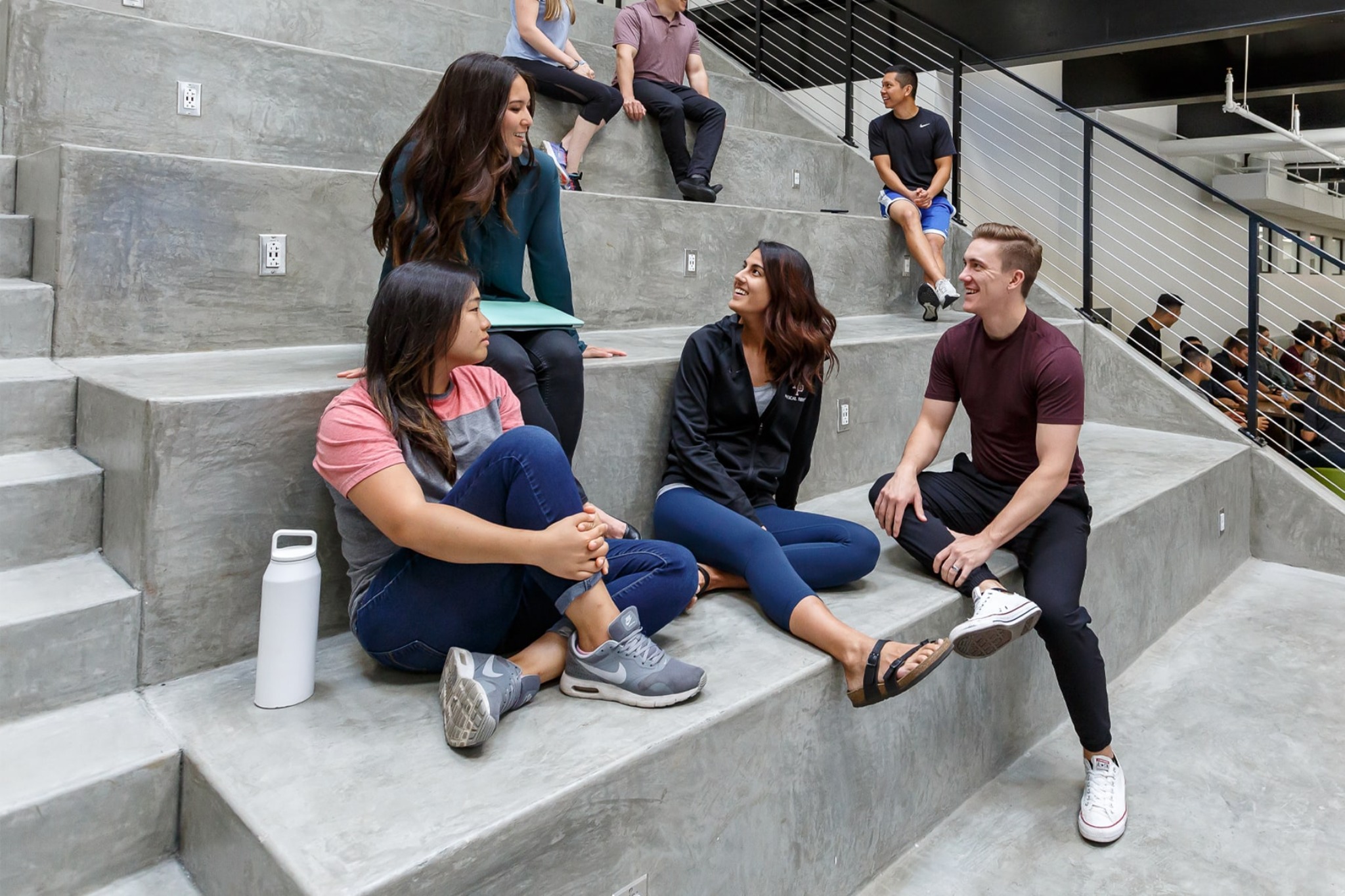
Master of Social Work (MSW)
Earn a Master of Social Work (MSW) at Azusa Pacific University
You’ll be prepared for success in a wide range of social work careers equipped with dynamic practicum experiences and highly valued skills. We make it possible to shape the program to your goals with two specialization choices and multiple certificate, credential, and training opportunities. You can customize your schedule with full-time, part-time, and advanced standing options. You’ll be ready to lead in the field and strengthen local, national, and international communities after being trained in a Christ-centered environment.
Advanced Standing 4+1: Earn Your MSW in 5 Years
Finish your undergrad in 4 years and earn your MSW in 1 more. You’ll save time and resources while gaining the knowledge, skills, and spiritual foundation to make a meaningful impact in social services.

Program at a Glance
MSW Information Meeting
Master’s of Social Work | Open House- Location: Welcome Center - East Campus
- Tuesday, February 10, 2026, 5-6:30 p.m.
Application Deadline
- Early Admission Deadline: January 15
- Advanced Standing Deadline: January 15
- Regular Admission Deadline: March 1
- Inland Empire Regular Admission Deadline: July 30
Program Information
- Traditional Program Units: 60-66
- Advanced Standing Program Units: 36-42
- Cost per Unit: $810
- Traditional Program Base Cost: $48,600-$53,460*
- Advanced Standing Base Cost: $29,160-$34,020*
Location
- Azusa (Main Campus), Inland Empire
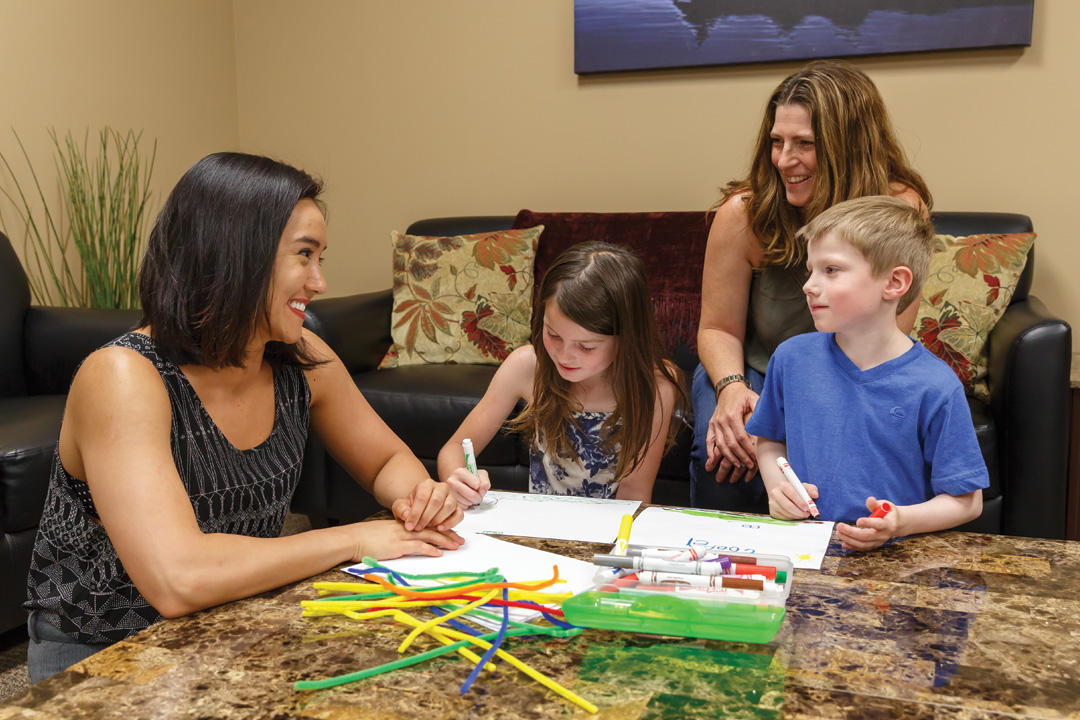
Gain Hands-on Experience
- Develop strong professional ethics through the integration of faith and learning.
- Hone expertise with elective options, including courses in couples therapy, clinical Spanish practice, and more.
- Build your résumé through specialized practicum experiences.
- Learn from faculty with extensive social work experience.
By the Numbers
Get Started

Breaking Barriers: Randall Trice ’19, ’20 Provides Foster Youth with Shoes for Grades
For Randall Trice ’19, ’20, a class project in the MSW program quickly turned into something bigger: it’s now a functioning nonprofit called Shoes4Grades.
Program Details
The Master of Social Work (MSW) program develops competent advanced social work practitioners and leaders who integrate knowledge based on scientific inquiry, values, and skills of social work to advance human well-being, promote justice, and advocate for equity for diverse individuals, families, groups, organizations, and communities, in the context of their environment locally and globally, informed by our Christian faith tradition.
Browse the tabs below—if you have questions, email mswadmissions@apu.edu, and we’ll make sure you get the info you need. We also encourage you to visit our Social Work Alumni, Students, and Career site for more information.
Prerequisites
To be admitted to the MSW program, students must:
- Hold a bachelor’s degree from a regionally accredited university or college (or an equivalent degree from a college or university in another country) with a minimum 3.0 grade point average on a 4.0 scale. A limited number of applicants with a grade-point average of 2.5-2.99 and relevant work experience may be admitted provisionally, at the program’s discretion.
- Completion of a statistics course (3 semester units, with a grade of C or higher). If statistics has not been taken at the time of MSW application, it must be completed (at any regionally accredited college or university) prior to the start of the MSW program in the fall. Proof of registration in a statistics course must be given to the MSW director of admissions and student services by April 1, with proof of progression given by June 15. Proof of completion is due by August 20. Applicants needing statistics will be admitted on provisional status until proof of completion of course is submitted, at which time provisional status will be removed.
Admission Requirements—Domestic Applicants
The university graduate and program admission requirements below must be met before an application is considered complete.
- Graduate application for admission
- $45 nonrefundable application fee
- Official transcripts from all institutions leading to and awarding the applicant’s
bachelor’s degree from a regionally accredited institution and all postbaccalaureate
study
An official transcript is one that Azusa Pacific University receives unopened in an envelope sealed by the former institution and that bears the official seal of the college or university. A cumulative minimum 3.0 (on a 4.0 scale) grade-point average on the posted degree is required for regular admission status. Provisional admittance may be granted to individuals with a lower GPA if competency can be shown through multiple measures. - Résumé
- Willingness to participate in an admission interview, including writing sample
- Two references from individuals familiar with your professional and/or academic interests and aptitude for MSW education. References are to be limited to individuals familiar with academic and/or professional abilities.
- Personal statement, four to six pages long (double spaced), including attention to
each of the following:
- Motivation for pursuing MSW education, including relevant background experiences and professional goals.
- Professional, internship, and volunteer experiences related to social work.
- Expectations regarding attending a Christian university for an MSW program, and approach to faith integration in social work practice. Although no admissions requirements exist regarding faith identification, Christian and other religious perspectives may be presented and discussed in classes.
- Discussion of a social problem of interest to you, including your perceptions of the causes of, and potential solutions to, the problem.
- Discussion of an ethical challenge you have encountered in professional, field, or volunteer work and how you resolved it.
- Personal statements are assessed based on:
- Writing and organizational skills.
- Evidence of professional commitments to service and social justice.
- Self-awareness and maturity indicating readiness to successfully complete program requirements.
- Engagement in employment, volunteer work, leadership activities, and/or other experiences relevant to professional social work.
-
Please write the statement in your own words, without the use of AI or other technology assistance.
- Acknowledge review of the National Association of Social Workers Code of Ethics.
Send official transcripts to:
Office of Graduate and Professional AdmissionsAzusa Pacific University
PO Box 7000
Azusa, CA 91702-7000
gpadmissions@apu.edu
Admission Requirements—Advanced Standing Applicants
In addition to the above requirements, Advanced Standing applicants must meet the following criteria:
- Graduation from a CSWE-accredited BSW program within seven years of starting the MSW program
- Minimum 3.0 cumulative GPA
- Minimum B grade in all social work classes
- Students who do not have a minimum B grade in all social work courses may be considered for conditional admission status. The conditional admission status requires maintaining a minimum cumulative GPA of 3.0 and no grade lower than B- in the first 12 units. The student who does not meet this requirement will be dismissed from the MSW program.
- Statistics course (grade C or higher)
- One reference must be from a BSW field supervisor
- Recommended but not required: a working knowledge of the Diagnostic and Statistical Manual (DSM) is recommended. Abnormal Psychology is a suggested prerequisite unless DSM knowledge has been gained through work experience.
What to Expect
After all admission materials have been received by the Student Services Center, the faculty or department chair reviews the applicant’s file. If considered as a finalist, the applicant is invited to interview and then notified in writing of the admission decision.
Meet Our Students
Click on any of the names below to view videos in which some of our alumni describe the great experiences they had in our program.
Bryan Brewer, MSW ’17
(VA Medical Center, Loma Linda)
Ashley Allen, MSW ’19
(MSW Alumni)
Pam Dong, MSW ’13
(Salvation Army, Divisional Strategic Mission Advancement Director)
Admission Requirements—International Applicants
Azusa Pacific University is authorized under federal law by the U.S. Citizen and Immigration Services and the U.S. Department of State to enroll nonimmigrant, alien undergraduate and graduate students. APU issues and administers both the I-20 and DS 2019 (F-1 and J-1 status documents respectively).
To apply for a graduate program at APU, the following requirements must be fulfilled in addition to meeting the domestic applicant and program-specific admission requirements specified above.
International applicants must also:
- Demonstrate proficiency in English through a placement test with the Academic Success Center, or through a TOEFL/IELTS score that meets program-specific requirements. Refer to APU’s English proficiency requirements to learn more. Request that official test scores be sent to APU. All other forms of proof indicated in the English proficiency requirements must be submitted directly to International Services.
- Provide a Graduate Affidavit of Financial Support (PDF) and a bank statement from within the last six months proving financial ability to pay for education costs through personal, family, or sponsor resources.
- Submit a copy of a valid passport showing biographical data, including your name, country of citizenship, date of birth, and other legal information.
- Get foreign transcripts evaluated. International credentials (transcripts, certificates, diplomas, and degrees) must be evaluated by a foreign transcript evaluation agency. View our policy and a list of approved Foreign Transcript Evaluation Agencies.
Send official transcripts to:
Office of Graduate and Professional AdmissionsAzusa Pacific University
PO Box 7000
Azusa, CA 91702-7000
gpadmissions@apu.edu
What to Expect
After all admission materials have been received by the Student Services Center, the faculty or department chair reviews the applicant’s file. The applicant is notified in writing of the admission decision.
Technical Standards
The Department of Social Work welcomes students from diverse backgrounds to apply for admission, but the BSW and MSW programs necessarily place specific requirements and demands on students accepted into the program. The following is a description of the technical standards that establish the essential qualifications required for safe and competent performance of the duties and skills needed in the social work profession.
If a student believes that he or she cannot meet one or more of the technical standards without a reasonable accommodation, APU will work with the student in an individualized, interactive process to determine whether reasonable accommodations can be made. Contact the Academic Success Center to apply for an accommodation.
Students must have and maintain:
- Physical strength and stamina to perform satisfactorily in classroom and social work agency settings.
- Physical mobility to transport to and from their classroom, practicum internship agency, and additional practicum meeting sites.
- Functional use of the senses to acquire and integrate data in order to conduct accurate observations in the classroom and in practicum settings.
- Language competence to communicate effectively with faculty and students, agency staff, clients, and other professionals.
- Reading and comprehension skills at a level and speed to respond to reports and other written documents in a timely manner.
- Writing skills at a college level and produced within a timely manner.
- Cognitive abilities to interpret objective and subjective data, and functional use of abstract reasoning to problem-solve.
- Mental adaptability to work under pressure in emotionally charged situations and unpredictable environments, and to demonstrate an acceptable handling of conflict without overt emotional display or aggression.
Delivering high-quality graduate programs takes a comprehensive support system. Your investment in an advanced degree includes those services and personnel who partner with you in pursuit of higher education. Below is a detailed breakdown of the fees associated with the benefits and services included in your degree program.
Department of Social Work
| Cost | |
|---|---|
| Master of Social Work (per unit) | $810 |
View a complete list of university fees.
All stated financial information is subject to change. Contact the Student Services Center at (626) 815-2020 for more information.
Health Resources and Services Administration (HRSA) Scholarships for Disadvantaged Students
The Master of Social Work program at Azusa Pacific University seeks to promote diversity among the behavioral health workforce within state-designated medically underserved communities (MUCs) by providing Scholarships for Disadvantaged Students (SDS) awards to eligible recipients through funding provided by the HRSA. Our HRSA scholarships provide Full Tuition to approximately 20 students each year!
Current HRSA Status
Our application to continue HRSA funding for this upcoming year has been submitted, check back for updates.
Scholarship Criteria
Scholarship recipients must be attending the MSW program on a full-time basis (either in the two-year full-time program or 10-month advanced standing program). Applicants must meet the following criteria and provide evidence as outlined below:
- Demonstrated Financial Need
Have demonstrated financial need Have a Student Aid Index (SAI) of $15,000 or less, as indicated on FAFSA report in accordance with current federal poverty guidelines for family/household size. - Defined Disadvantaged Background
Be from a defined disadvantaged background, meeting a minimum of ONE of the following criteria (students meeting multiple categories and demonstrating severe financial hardship will be given awarding preference):
- Economic Disadvantage: Family income below federal poverty guidelines as determined by FAFSA data. Additional documentation may be requested to verify eligibility.
- Education Disadvantage: Graduation from low-performing high school, as determined by California State Department of Education School Accountability Report Card. Submit copy of high school diploma with application.
- Environmental Disadvantage: For example, but not limited to: First-generation college student (verified by the Department of Social Work through Financial Services reporting), history of poverty, illness, single-parent status, history of foster care, history of substance dependence and recovery, or other life circumstance(s).
- Qualifying Citizenship/Resident Status
Verify status as United States citizen or permanent resident by attaching copy of passport, birth certificate, naturalization certificate, or permanent resident card to application. - Qualifying Practicum Placement
Placed in qualifying practicum site serving medically underserved communities. Practicum sites will be verified by the department; no additional information required.
Accepted students must sign and agree to:
- Intern in a behavioral health primary care setting serving medically underserved communities in years one and two of the MSW program (Advanced Standing students have only one internship)
- Report on training received during internship
- Participate in faculty/alumni mentorship activities
- Report need for and use of department and university support services
- Seek employment in medically underserved communities providing behavioral health care in primary setting upon graduation
- Provide written statement on impact of SDS award on degree completion and preparation for employment in a primary care setting providing behavioral health in medically underserved communities
- Report employment information to the department annually for four years, as requested
Awards not to exceed $36,000 per year (with a maximum of $72,000) are made over two years for two-year full-time students and one year for 10-month Advanced Standing students. The award is meant as an incentive to support students from disadvantaged backgrounds who have a passion for delivering integrated behavioral health care in medically underserved communities and want to attain an MSW degree in preparation for clinical practice. Funds will be distributed per semester (fall and spring), and funding is contingent on successful completion of program requirements as outlined in the MSW Student Handbook.
This project is/was supported by the Health Resources and Services Administration (HRSA) of the U.S. Department of Health and Human Services (HHS) under Scholarships for Disadvantaged Students, grant number T08HP30169 in the amount of $2,700,000. This information or content and conclusions are those of the author and should not be construed as the official position or policy of, nor should any endorsements be inferred by, HRSA, HHS, or the U.S. Government.
Community Leadership and Program Administration Student Award
This faculty-nominated award is presented to two Foundation Year Community Leadership and Program Administration students, one each from the full-time and part-time cohorts, who have demonstrated excellence in foundation academic coursework, fieldwork, and professionalism, along with an impressive understanding and application of macro work practice skills. The award is $500 per winner. Selection is based on:
- Top GPA after completion of foundation curriculum and practicum internship
- Practicum internship performance
- Evidence of professional behavior and conduct
Nominations come from MSW faculty. If there are multiple candidates for either award, essays will be solicited to select the winner. The awards are presented each year in May.
MOU Partner Tuition Discounts
The MSW program at the Inland Empire Regional Campus offers $500 dollars discount per semester with a total cap of $2000 for employees of Riverside and San Bernardino counties. Riverside County employees should visit the County of Riverside MOU page, and San Bernardino County employees need only show proof of employment.
Additional Outside Scholarships
MSW students are encouraged to look for external scholarship opportunities.
Financial Aid
Several types of financial aid are available to graduate students. The resources range from federal loans and state grants to, for some graduate programs, fellowships and scholarships. For details about financial aid available for your program, contact the Student Services Center at (626) 815-2020.
Military Benefits
Military members—and in some cases their spouses and dependents—qualify for financial assistance covering tuition, housing, and books. Azusa Pacific is a Yellow Ribbon University and Military Friendly School, so you can be confident that you’ll receive the benefits and flexibility you need to complete your education.
To view specific requirements and coursework information, visit the current academic
catalog:
Pupil Personnel Services Credential in School Social Work and Child Welfare and Attendance Services
The PPS Credential in School Social Work and Child Welfare and Attendance Services equips graduates for employment in social work services in P-12 school settings. This credential can be incorporated as part of the MSW degree program and clinical practice specialization, and is also available to post-MSW graduates. Learn how to support children, parents, and school personnel while shaping a responsive environment to help children succeed academically and thrive emotionally.
Additionally, many of our students utilize the Golden State Teacher Grant, which provides awards of up to $20,000. Students must complete their program and obtain their credential within 6 years from the date their initial GSTG payments are mailed to their institution, and commit to work at either a priority school or a California preschool program for 4 years within 8 years of completing their program.
Human Services Management Certificate
Through a partnership with The Network for Social Work Management (NSWM), APU Master of Social Work students taking the Community Leadership and Program Administration specialization can also earn a Human Services Management Certificate, under the advisement of a faculty member. The MSW program, including its management content, prepares students for fulfilling administrative and leadership roles, and the Human Services Management Certificate helps them develop their leadership skills and launch their careers in management. The competencies outlined by the NSWM speak to areas of great importance to the social work profession, and to successful leadership and management within health and human services. Eligible students pay a $50 fee for the certificate, which will be issued at the MSW Hooding Ceremony held a few days prior to commencement.
For more information on the certificate, contact Emily Kemp, director of admissions and student services, at mswadmissions@apu.edu or (626) 857-2400.
Geriatric Social Work Education Consortium (GSWEC)
Azusa Pacific University is a member of the Southern California Geriatric Social Work Education Consortium (GSWEC), which brings together the social work departments of eight universities in the greater Los Angeles area and 12 Centers of Excellence, which are agencies that focus on specialized training, advocacy, and service delivery for older adults. GSWEC provides a directed social work field education experience for students who want to develop skills in working with older adults and their families.
Students who apply for GSWEC are eligible to interview for placements at one of the Centers of Excellence, which offer opportunities in hospital settings, outpatient care management, veterans’ facilities, behavioral health, substance abuse, dementia patients and caregivers, and more. With a focus on leadership skills, the students attend a series of seminars and trainings arranged by GSWEC member agencies. Specialization-year students, in either the clinical specialization or community specialization, are eligible to apply for this program, which offers a stipend with no work/payback requirement. The recruitment process begins in January of the student’s foundation year.
For more information on GSWEC, contact Jean Un at jun@apu.edu or (626) 815-6000, Ext. 2767.
L.A. DCFS + UCLA Academy of Workforce Excellence Child Welfare Stipend Program
L.A. DCFS + UCLA Academy of Workforce Excellence Child Welfare Stipend Program is offered under the Title IV-E provision of the Social Security Act, with the goal of strengthening professional social work practice in public child welfare agencies. This stipend opportunity is offered through a federally funded program in partnership with the Los Angeles County Department of Children and Family Services (DCFS) and six other Los Angeles-area MSW programs. This stipend provides financial support to MSW students interested in child welfare, in exchange for a commitment to work for Los Angeles County DCFS.
The Child Welfare Stipend Program provides a stipend in the amount of $26,000 per year for a total of $52,000 for students who successfully complete both years of the internship program. Students are eligible to apply upon acceptance into the MSW program for full-time students, and while in the program for those in the three-year program.
Stipend recipients will intern with a community-based child welfare organization in their generalist year, and will intern with the Los Angeles County DCFS in their specialization year. Upon successful completion of the MSW program, students are hired by the department and commit to working for the department for 2 years.
Final stipend awards are contingent upon final funding of the L.A. DCFS + UCLA Academy
of Workforce Excellence subaward grant.
Want to Learn More?
Direct questions to Virginia Olivas, MSW, L.A. DCFS Stipend Program coordinator, APU Department of Social Work, at volivas@apu.edu.When are applications due?
The early admission and advanced standing deadline is January 15. The regular admission deadline for our Azusa 2- and 3-year programs is March 1. Applications may be accepted after March 1 if there are any openings. The regular admissions deadline for our 3-year Inland Empire program is June 30. Call (626) 815-4590 before submitting a late application.
Do I have to take the GRE?
No, we do not require the GRE.
Can I apply if my undergraduate degree is not in social work?
Yes. We accept applications from students with any undergraduate degree from a regionally accredited university or college.
What is the GPA requirement?
APU requires a grade-point average (GPA) of 3.0 or higher for regular admission. If a student earned a baccalaureate GPA of 2.50-2.99, he or she could be admitted provisionally, and must earn a B- or higher in each course (and 3.0 or higher GPA) for the first 12 units to stay in the program and have the provisional status removed.
Advanced Standing requires graduation from a CSWE-accredited BSW program with a minimum 3.0 GPA (Minimum B grade in all social work courses. Students who do not have a minimum B grade in all social work courses may be considered for conditional admission status).
Are there any prerequisite courses?
Completion of a statistics course (3 semester units, with a grade of C or higher). If statistics has not been taken at the time of MSW application, it must be completed (at any regionally accredited college or university) prior to the start of the MSW program in the fall. Proof of registration in a statistics course must be given to the MSW director of student services by April 1, with proof of progression given by June 15. Proof of completion is due by August 20. Applicants needing statistics will be admitted on provisional status until proof of completion of course is submitted, at which time provisional status will be removed.
How do I find out about financial aid?
Please refer to Graduate and Professional Student Financial Services. Students must maintain a 3.0 GPA to continue receiving financial aid. There are also department specific scholarships available.
Do I need to submit reference letters?
Yes. We require two recommendations from individuals familiar with your academic and/or professional abilities. You will provide the name and contact information for your recommenders and an electronic recommendation form will be sent to them directly.
What else do I need to include with the MSW application?
Applicants are required to submit a personal statement (4–6 pages, double spaced) and attend to each of the prompts outlined above. Personal statement can be comprehensive or answer each question individually. In addition to a personal statement, applicants must include a résumé, official transcripts, and the contact information for two references.
Do I also need to complete the APU Graduate Application form?
Yes. We require completion of the APU graduate application for admission, in addition to the MSW application form. Complete all application requirements and submit the required $45 application fee. APU alumni and military veterans are not required to pay an application fee.
Can I transfer in any units?
Students previously enrolled in a CSWE-accredited MSW program may be able to transfer up to 12 units of foundation-year courses (completed within the last five years of the projected graduation date). In addition, it is possible to transfer up to six units of elective credit from another graduate program, providing the courses are relevant to the MSW program and have been completed within the last five years of admission to the program. All transfer requests will be assessed by the MSW program director for eligibility after admission to the program. Advanced Standing students cannot transfer any coursework into the program.
What are the requirements to apply for Advanced Standing?
Students must have a BSW degree from a CSWE-accredited program with a minimum 3.0 GPA and a B grade in all social work courses. Students who do not have a minimum B grade in all social work courses may be considered for conditional admission status.
The Master of Social Work practicum education program at Azusa Pacific University equips students with the critical skills necessary to serve as professional social work practitioners, including competence in skill performance with diverse populations in a variety of settings in accordance with the Council on Social Work Education accreditation standards.
The MSW practicum education program has more than 380 agency partnerships across all five counties in Southern California (Los Angeles, San Bernardino, Riverside, Orange, and Ventura) committed to educating and preparing our MSW students for careers in professional social work.
Interested in Becoming an Agency Partner or Practicum Instructor?
Thve practicum agency and practicum instructor are instrumental partners in the practicum education program. Agencies are invited to become approved APU MSW practicum internship sites. To learn more, visit the How To Become a Practicum Internship Site on the Social Work Practicum Education website.
Current MSW Student or Practicum Instructor?
Visit the Social Work Practicum Education website for current forms, calendars, other resources, and information relating to practicum education.
For more information, contact:
Director of Practicum Education and Assistant Professor, Department of Social Work
- Email: swpracticum@apu.edu
The MSW program is offered in multiple formats for the full-time student as well as the working professional, including 1-year, 2-year, and 3-year options. You can also choose from two specializations and electives to further focus the degree:
- Clinical Practice with Individuals and Families
- Community Leadership and Program Administration
As we transition to 1-, 2-, and 3-year program options in academic year 2024-25, we are in the process of sunsetting our 4-year, part-time program. At the bottom of this page are the program schedules for returning students.
Download MSW Elective Offerings
2-Year Option (Azusa Campus)
The 2-year program (60 units) includes daytime classes two days per week and approximately 16 hours per week of supervised practicum. All students enroll in the same first-year generalist courses. Specialization courses are taken in the second year of the program. Students complete a 16-hour-per-week practicum at a placement specific to their specialization. Placements are available in Los Angeles, Orange, Riverside, San Bernardino, and Ventura counties.
Download Azusa 2-Year Program Schedules
3-Year Option (Azusa Campus)
The 3-year program (60 units) includes classes every Tuesday evening, as well as Saturday intensive courses which meet 3-5 times per semester. Classes are also held in the first half of summer after year 1 and year 2. The three year track is conducive to students who are working professionals, but becomes challenging to maintain full time employment in years 2 and 3 when practicum is required. Supervised practicum requires approximately 16-20 hours per week, with placements available in Los Angeles, Orange, Riverside, San Bernardino and Ventura counties. Students maintaining employment while in the program must have the ability to reduce/rearrange employment hours in the second and third year to accommodate the practicum requirement.
Download Azusa 3-Year Program Schedules
3-Year Option (Inland Empire Regional Campus)
The 3-year program (60 units) includes classes every Thursday evening, as well as Saturday intensive courses which meet 3-5 times per semester. Classes are also held in the first half of summer after year 1 and year 2. The three year track is conducive to students who are working professionals, but becomes challenging to maintain full time employment in years 2 and 3 when practicum is required. Supervised practicum requires approximately 16-20 hours per week, with placements available in Los Angeles, Orange, Riverside, San Bernardino and Ventura counties. Students maintaining employment while in the program must have the ability to reduce/rearrange employment hours in the second and third year to accommodate the practicum requirement.
Download Inland Empire 3-Year Program Schedules
Advanced Standing Option
Two Advanced Standing program options allow select qualified BSW graduates to complete the MSW program at an accelerated rate, on either a 1-year or 2-year track. All Advanced Standing students enroll in bridge coursework (6 units) two nights per week online (asynchronous) in July/August, then progress into specialization classes in the fall semester; they do not take any foundational MSW coursework, since it was covered in the BSW curriculum.
1-Year Advanced Standing
Students complete six weeks of bridge coursework (6 units), meeting two evenings per week online (synchronous) in July/August prior to the start of the specialization curriculum, then they join current second-year students for the remaining two semesters (30 units). Students complete a 20-hour-per-week practicum at a placement specific to their specialization. Placements are available in Los Angeles, Orange, Riverside, San Bernardino, and Ventura counties. Classes are held Tuesdays and Thursdays, and practicum hours are on Mondays, Wednesdays, and Fridays (days and times to be arranged with agency).
Download 1-Year Advanced Standing Schedules
2-Year Advanced Standing (Azusa and Inland Empire)
The 2-year Advanced Standing option allows students to complete the MSW program in two years to accommodate employment. Students complete six weeks of bridge coursework (6 units), meeting three evenings per week online (synchronous) in July/August prior to the start of the specialization curriculum in the fall. They join current MSW students for the remaining two years (30 units). Students complete a 20-hour-per-week practicum in the second year of the program at a placement specific to their specialization; placements are available in Los Angeles, Orange, Riverside, San Bernardino, and Ventura counties. Classes are held in the evenings and a few Saturdays, and practicum hours are conducted weekdays (days and times to be arranged with agency). Students maintaining employment while in the program must have the ability to reduce/rearrange employment hours in the second year to accommodate the practicum requirement.
Download 2-Year Advanced Standing Schedules - Azusa Download 2-Year Advanced Standing Schedules - Inland Empire
Current Student Program Options
If you’re a current student in the MSW program or are interested in applying, the resources below can help you navigate through the academic process.
Professional Advising and Academic Advising
MSW students are assigned a professional faculty-mentor who is available to meet with you throughout the duration of your studies. While the faculty-mentor is your primary contact person within the program, you are also encouraged to meet with other faculty, as needed, as part of your professional development. Refer to the MSW Student Handbook for your assigned mentor.
Each semester, the director of student services will communicate with you regarding academic advising. It is important to check your APU email account regularly for information on class registration, electives, scholarship opportunities, job openings, etc.
MSW Student Handbooks
- 2024-25 MSW Student Handbook (PDF)
- 2023-24 MSW Student Handbook (PDF)
- 2022-23 MSW Student Handbook (PDF)
- 2021-22 MSW Student Handbook (PDF)
- 2020-21 MSW Student Handbook (PDF)
- 2019-20 MSW Student Handbook (PDF)
Student Learning Outcomes and Competencies Report
All Council on Social Work Education (CSWE) programs measure and report student learning outcomes. Students are assessed on their mastery of the competencies that comprise the accreditation standards of CSWE. These competencies are dimensions of social work practice that all social workers are expected to master during their professional training.
APU Master of Social Work Student Association (MSWSA)
The MSWSA acts as a liaison between students and the MSW program and faculty, facilitating faculty/student communication and collaboration, organizing student extracurricular and developmental events, serving the surrounding community, and working with the MSW program on issues related to student affairs, social justice, political advocacy, and program development. See the MSW Student Handbook (above) for more information.
APU Social Work Alumni Association
For more information, call Steffani Platt at (626) 815-4614. You can also visit the APU social work alumni website for more resources and a calendar of events.
Association for Community Organization and Social Administration (ACOSA)
ACOSA is a membership organization for community organizers, activists, nonprofit administrators, community builders, policy practitioners, students, and educators. ACOSA will keep you informed of the latest innovations in community and administrative practice, as well as provide you with a variety of opportunities for networking and professional advancement.
Association of Social Work Boards (ASWB)
ASWB has information for licensing, board or college websites, statutes and administrative rules where you intend to practice if you have any questions about the laws, requirements for licensing, etc.
Board of Behavioral Sciences, California
The Board of Behavioral Sciences is responsible for consumer protection in California, through licensing and regulation of Licensed Marriage and Family Therapists (LMFT), Licensed Clinical Social Workers (LCSW), Licensed Professional Clinical Counselors (LPCC) and Licensed Educational Psychologists (LEP). The board registers and regulates MFT Interns (IMF), Associate Clinical Social Workers (ASW), Professional Clinical Counselor Interns (PCCI) and Continuing Education Providers.
Council on Social Work Education (CSWE)
CSWE is a nonprofit national association representing more than 2,500 individual members, in addition to graduate and undergraduate programs of professional social work education. Founded in 1952, this partnership of educational and professional institutions, social welfare agencies, and private citizens is recognized by the Council for Higher Education Accreditation as the sole accrediting agency for social work education in this country.
Lobby Days
Legislative Lobby Days is a two-day event that educates students and professionals about important legislation affecting clients and the social work profession.
National Association of Social Workers (NASW)
NASW equips its members for professional social work practice.
Network for Social Work Management (NSWM)
The Network for Social Work Management is an international organization focused on strengthening and advancing social work management within health and human services.
North American Association of Christians in Social Work (NACSW)
NACSW equips its members to integrate Christian faith and professional social work practice.
Society for Social Work and Research (SSWR)
SSWR is a professional membership society for social workers who are interested in research.
If you have questions, we’re here to help! Connect with a representative who can walk you through the program details and application process.
Contact Your Admissions Representative
Department of Social Work
Phone
- BSW Program: (626) 857-2410
- MSW Program: (626) 857-2401
Azusa Pacific University
PO Box 7000
Azusa, CA 91702-7000
Hours
Monday–Friday, 8:30 a.m.-4:30 p.m.
Student Services Center
Email: admissions@apu.edu
Phone: (626) 812-3016
For details on the admissions process, financial aid, and class registration, visit apu.edu/ssc.
International Services
Email: international@apu.edu
Phone: +1 (626) 812-3055
Visit apu.edu/international/.
- Azusa Pacific University is accredited by the WASC Senior College and University Commission (WSCUC).
- The MSW program is accredited by the Council on Social Work Education (CSWE).
- The MSW program’s Pupil Personnel Services Credential in School Social Work and Child Welfare and Attendance is accredited by the California Commission on Teacher Credentialing (CTC).
- View the Student Learning and Competencies Outcomes Report (PDF).
Career Outlook and Outcomes
Featured Faculty
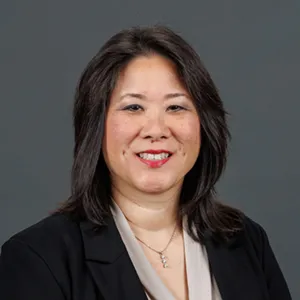
Kimberly Setterlund
Chair, Assistant Professor, and MSW Director, Department of Social Work
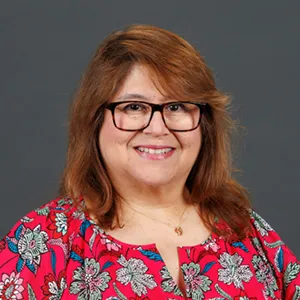
Evelyn Castro-Guillen
Director and Assistant Professor, MSW Program (Inland Empire), Department of Social Work
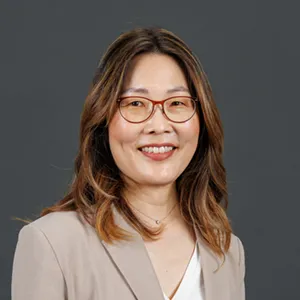
Jean Un
Director of Practicum Education and Assistant Professor